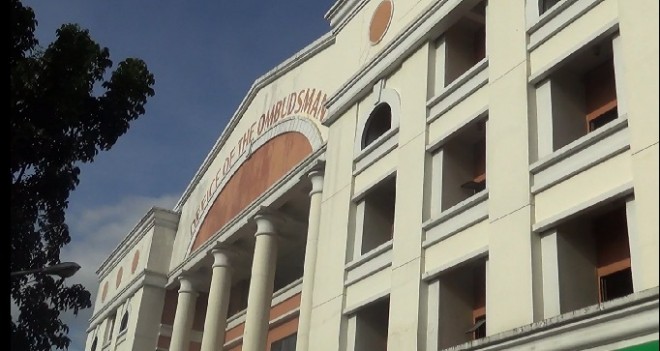THE OFFICE of the Ombudsman, continuing an anticorruption crackdown, filed criminal charges on Monday against erring local government officials, including another major ally of President Aquino, in the Visayas.
Bohol Gov. Edgardo Chatto, a member of the ruling Liberal Party (LP) and a staunch supporter of administration standard-bearer Mar Roxas, was indicted for graft in the Sandiganbayan for his alleged role in undervaluing the privatization of the water and electricity utilities in the province by P627 million in 2000. At the time, Chatto headed the provincial council as vice governor.
Charged alongside Chatto was incumbent Bohol Rep. Rene Relampagos who was then the governor when the provincial government entered into an agreement with the consortiums of Salcon International Inc., Salcon Power Corp., Pure and Pam Inc., Salcon Philippine Inc. and Salcon Ltd.
Also indicted for violation of Republic Act No. 3019, or the Anti-Graft and Corrupt Practices Act, were Provincial Board Members Arnold Lungay, Isabelito Tongco, Eufrasio Mascarinas, Concepcion Lim, Exequiel Madrinan, Severino Caberte, Tomas Abapo Jr., Francisco Alena Sr., Felix Uy and Renato Inocentes Lopez.
Dennis Villareal, president of the private consortium, was included in the charge sheet as a private respondent.
Single criminal intent
In a three-page complaint signed by Assistant Special Prosecutor Manuel Soriano Jr., the Ombudsman said Chatto et. al violated the law by “conspiring and confederating with one another and impelled by a single criminal intent.”
It said the officials agreed to sell the assets and franchises of the water services in Bohol for P80 million and the power supply for P75 million.
The antigraft body said the agreement entered into by the public officials was “manifestly and grossly disadvantageous to the government” since the combined assets of the basic utilities was valued P782 million.
Fertilizer scam
Ombudsman Conchita Carpio Morales also approved the indictment for graft of former Camarines Norte Gov. Jesus Typoco and seven others over the alleged procurement of P5-million worth of liquid fertilizers without holding a public bidding in 2004.
The amount purportedly came from the P728 million in fertilizer funds that the national government allocated for the purchase of farm inputs and implements under the “Ginintuang Masaganang Ani Program” of the Department of Agriculture (DA).
The funds, however, were allegedly used for the presidential campaign of then President Gloria Macapagal-Arroyo.
“As governor and public official, [Typoco] is accountable for his actions relative to the contract he entered into,” the Ombudsman said in its resolution.
“Typoco cannot simply be exempted because he was then busy campaigning for the upcoming elections,” it added.
According to the Ombudsman, a total of P5 million was allocated to Camarines Norte province for the purchase of agricultural supplies and vegetable seeds.
Hexaplus
It said Alex Rivera of Hexaphil Agriventures Inc. approached the provincial government in March 2004 and offered to sell a bottle of Hexaplus liquid fertilizer for P700.
A month later, the provincial government entered into a memorandum of agreement with the regional DA office.
The Ombudsman said Typoco subsequently approved the purchase of 7,142 bottles of Hexaplus from Rivera on April 16, 2004, without any public bidding.
In addition to the graft case, the Ombudsman also indicted provincial accountant Maribeth Malaluan and the five members of the bids and awards committee—Jose Atienza, Lorna Coreses, Cesar Paita, Rodolfo Salamero and Jose Rene Ruidera—for violation of RA 9184, or the Government Procurement Reform Act.
“The acts of public respondents may appear independent, but the same were in fact concerted and cooperative, indicating closeness of personal association, concerted action and concurrence of sentiments which would not have been consummated if not for the participation and concerted efforts of all public respondents,” Morales said in a statement.
In its investigation, the Ombudsman found out that Hexaphil was “not a legitimate company” since it was not registered with the Securities and Exchange Commission, the Department of Trade and Industry and the Bureau of Internal Revenue. The supplier was also nowhere to be found in the business address it declared, it said.
“[The] respondents did not exercise diligence in the conduct of its market probe prior to the award of contract,” the Ombudsman said.
